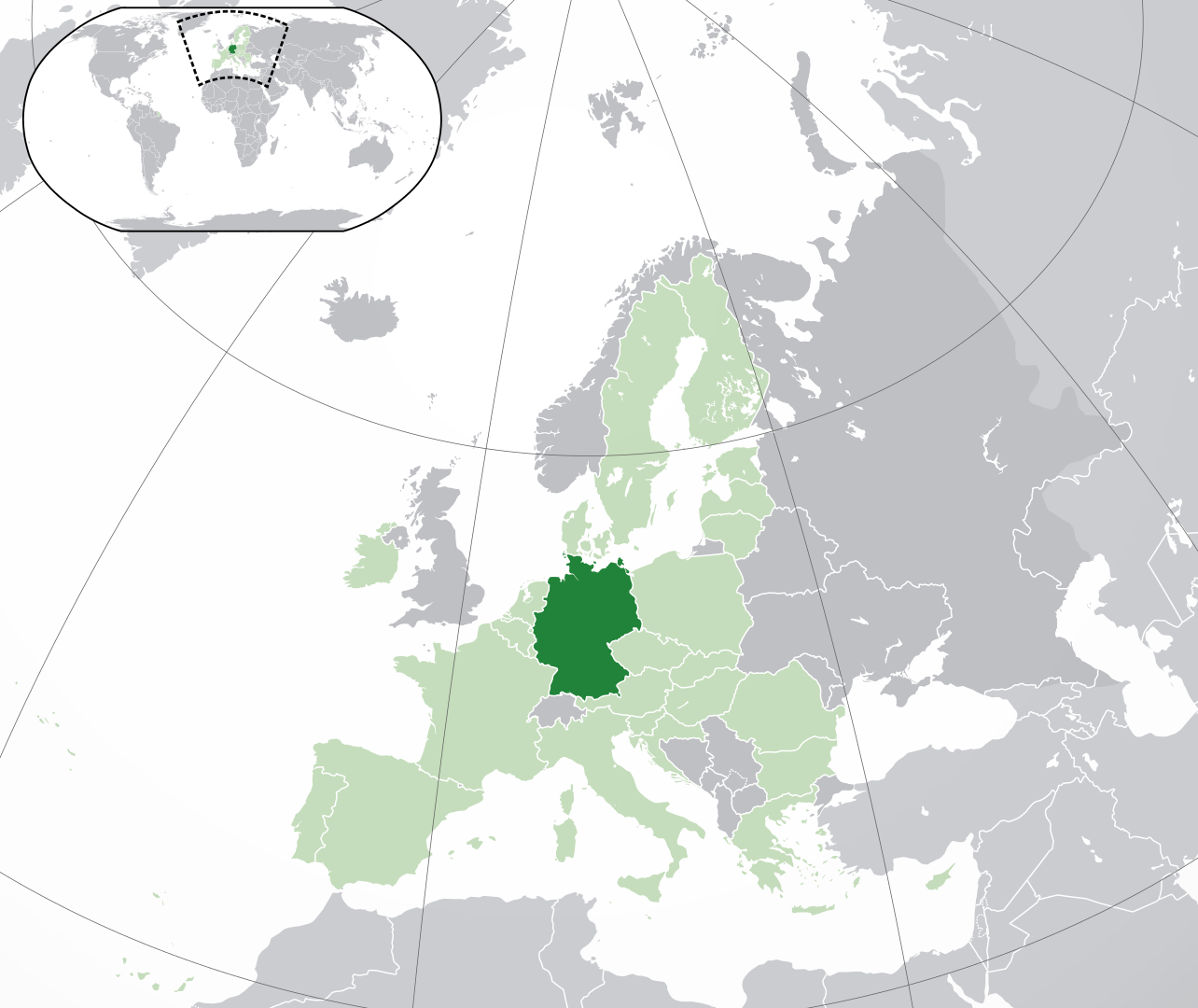 |
By NuclearVacuum - File:Location European nation states.svg, CC BY-SA 3.0,
https://commons.wikimedia.org/w/index.php?curid=8087888
|
Jane Lambert
Art 126 of the Agreement on the withdrawal of theUnited Kingdom of Great Britain and Nothern Ireland from the EuropeanUnion and the European AtomicEnergy Community ("the withdrawal agreement") provides for a transition or implementation period, which shall start on the date of entry into force of that agreement and end on 31 Dec 2020. During that period, EU law continues to apply to the UK under art 127 thereby enabling it to remain in the customs union and single market. That period could have been extended by up to 2 years by virtue of art 132 had the British government so wished but that opportunity lapsed on 1 July 2020.
The other significant event that occurred on 1 July is that Germany assumed the presidency of the European Union from Croatia and it is clear from the German presidency website that brexit is not a priority for the German government. Talks between negotiators for the Commission and British government have not gone well. Negotiations in Brussels that were supposed to last from 29 June to 3 July 2020 broke up early (see Statement by Michel Barnier following the restricted round of negotiations for a new partnership between the European Union and the United Kingdom of 2 July 2020).
According to Monsieur Barnier, the sticking points are:
"1, robust guarantees for a level playing field – including on state aid – to ensure open and fair competition among our businesses;In a speech to the General Assembly of Eurofi on 30 June 2020, Monsieur Barnier mentioned a fourth on the regulation of financial services. In his view"the UK is trying to keep as many Single Market benefits as it can. It would like to make it easy to continue to run EU businesses from London, with minimal operations and staff on the continent." He observed:
2. a balanced, sustainable and long-term solution for our European fishermen and women;
3. an overarching institutional framework and effective dispute settlement mechanisms."
"The UK chose to no longer be a Member State. It chose to leave the EU Single Market and stop applying our common ecosystem of rules, supervision and enforcement mechanisms. In particular, it refuses to recognise any role for the European Court of Justice. These choices have consequences. The UK cannot keep the benefits of the Single Market without the obligations."Negotiations between the Commission and the British government are continuing There will be informal discussions this week and a further round of formal negotiations in the week commencing 20 July 2020.
The British government has opened negotiations to accede to the Comprehensive and Progressive Agreement for Trans-Pacific Partnership ("CPTPP") which is essentially the Trans-Pacific Partnership without the United States. It is also conducting bilateral negotiations with Australia, Japan and New Zealand which are members of the CPTPP and well as with the USA. I have opened a new CPTPP page to monitor the accession negotiations as well as the new partnership negotiations with the EU. I can report very little that is new with bilateral negotiations.
Anyone wishing to discuss this briefing should call my clerk, Stephen Somerville, on +44(0)7986 948267 or send me a message through my contact page.



No comments:
Post a Comment